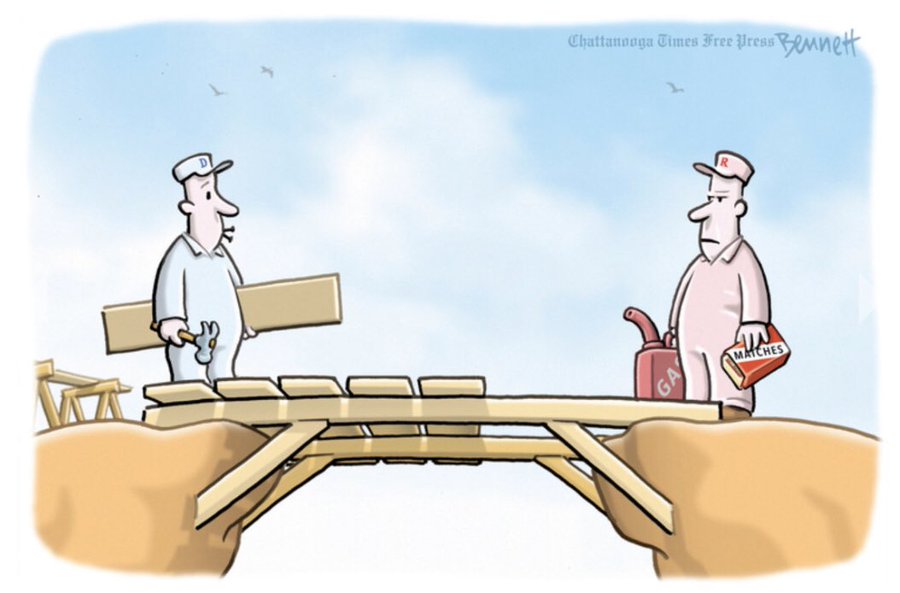In the most important ways, 2021 was a calamitous year: Covid continued to rain death upon the planet, rioters stormed the Capitol with awful intentions, China continued to crack down on Hong Kong, and there were countless other terrible events.
One under-appreciated confluence, however, is the many progressive sacred cows that were slaughtered in 2021, problems that we thought we had solved as a society but were in reality being held back by continuous action and the continued efforts of Republicans, largely. Democrats advocated for being more acquiescent to new policies because society and our understanding of economy had evolved to a place where progressive thinking would actually help us progress. These three issues are crime, inflation, and the whether paying for unemployment causes unemployment.
I've seen only one of these discussed in this context: Democratic policies have led to a surge in crime. The author puts the realization in 2022, but it was clear in 2021 what was happening. Namely, in the run-up to 2021 and especially in 2020, Democrats had all the power in criminal justice. Democratic fundraisers had been "overhauling the US justice system" (other sources: 1, 2, 3); there was the defund the police movement; and also the drive to end bail. The result to this new approach to crime, as Republicans warned, has led to an increase in crime.
It's edifying to put this in the historical context. Crime surged in the second half of the 20th century, and was a major problem and political issue into the 1980s. Mayor Giuliani is the most well-known representative of the turning of the tide. Since the 1990s, crime rates have been gradually declining across the country. Whenever a problem is solved to this extent, it becomes a smaller and smaller factor in elections and also creates the false impression that the underlying problems have been solved when they have not. This opened the door for people who have more theoretical ideas about society and crime to become ascendant and set the agenda, and now, unfortunately and at great cost, we have learned that those ideas were wrong.
Inflation is another problem we thought we solved, coincidentally, around the same time crime started to fall. Paul Volcker, during Ronald Reagan's first term, engineered a recession to break the inflation spiral we were in in the early 1980s, and since then, under several Federal Reserve regimes, inflation has come down and been steady at around 2%. Like crime, inflation was a distant, bad memory and therefore we believed it was a permanently solved problem leaving us free to experiment. In addition to this, Republicans were proven wrong time and time again when they predicted inflation after excessive spending, most notably after the 2008/09 financial crisis, bailouts, and stimulus.
It was no surprise that Republicans and conservative economists were quiet during the stimulus debates, particularly over whether it would lead to inflation. This also opened the floor for MMT, an unapologetically high-deficit, no worries philosophy--Keynesianism on steroids. The most prominent critic of the stimulus, particularly the 2021 American Rescue Plan, Larry Summers argued that it was largely unnecessary given the economic conditions at the time and there was a good chance it would lead to inflation. He wasn't only disagreed with, he was mocked and ridiculed. (Personal plug: I did a thread on his discussion with Krugman regarding stimulus). Well, it's no longer news, but Summers was proven right, inflation has become a problem again, and most believe that stimulus was at least partially to blame.
Finally, Democrats have been arguing for at least a decade that unemployment benefits have no effect on unemployment rates and Republicans have been arguing for at least a decade the opposite. Back in the summer of 2021, when some red states ended their unemployment benefits before others, media outlets (and) and economists quickly pronounced that there was evidence that the unemployment benefits didn't matter. But in November, after all states had ended their unemployment extensions, it was clear that these slowed the labor recovery, though there was no similar round-up of evidence from the same sources.
Taking in all of these, it's clear that 2021 provided ample evidence that problems we thought we had solved were not, but were held at bay by past policies and that the progressive ideas to move the ball forward would be counter productive.



